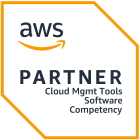
5 Habits of Successful DevOps Engineers

CEO and Co-founder
Saying DevOps is hard work may just be the understatement of the century. While initially the combination of development and operations was a cultural shift created to remove silios, now DevOps has evolved into an actual engineering role. And because they are a blend of two different departments, DevOps engineers often find themselves wearing far too many hats. Sometimes DevOps engineers are required to code, while also handling core operational responsibilities. While other times they are primarily ops engineers who work hand in hand with dev.
Either way, there is definitely enough work to go around in this role. In fact, according to a recent survey by Haystack, this has led to 83% of engineers reporting some level of burn out.
To those of you in the DevOps world, these numbers are not a surprise. But if you’re looking for a silver lining, there are skills and characteristics that can help DevOps engineers be more equipped to handle the many challenges related to this field.
While soft skills are often overlooked, in DevOps, where culture is prioritized, there are a number of interpersonal skills that are proven to be essential to career progression.
Here are five of the most critical soft skills you’ll need for DevOps success:
1. Curiosity
A successful DevOps engineer never stops learning. Technology is changing rapidly, so being stuck in the status quo is inherently bad for innovation.
Although it’s important to admit when you don’t know something, a great DevOps engineer should always try to find the answer and be proactive about solving problems. After all, asking the right questions and keeping your eyes and ears open is of utmost importance in this fast paced field.
So be curious enough to find solutions. Whether browsing through forums on Reddit, Dev.to, Stack Overflow or reading articles on Medium, Hackernoon or popular developer blogs, your questions have likely already been answered. Meetups like DevOpsDays and others are also great resources to connect with like minded folks and learn about new industry trends, technologies, and developments.
2. Communication
Some people imagine DevOps engineers as individuals who sit in a corner alone and quietly code away, but that couldn’t be further from the truth.
DevOps is all about teamwork. And nothing makes teamwork more successful than communication. Being clear with both team members and your team leader about what you’re building, how you’re building it, and the challenges you’re experiencing along the way will only help you in the long run.
Not only will you be more in sync with your team, but you’ll also be able to gain their perspectives, insights, and help when you need it. Enabling you to become a better engineer, while also gaining the support when you need it.
Asking questions, articulating your needs, and understanding the requests of others will make your job easier, while keeping goals aligned. Tools like Slack and Microsoft Teams help distributed teams improve their communication, even in an era where face to face conversations are not always possible.
3. Collaboration
DevOps is a team sport. Well, it isn’t a sport exactly, but you know what we mean.
Gone are the days when you wrote code and sent it to QA for testing, then to operations to push to production. Today, coding, testing, debugging, and deployment is a team effort that requires us to own every step of the cycle by working collaboratively.
Collaboration is essential to DevOps because it enables us to prioritize various workloads, better manage time, maintain version control, and gain visibility into projects. Additionally, studies have proven that diverse backgrounds, opinions, and experiences yields more innovation – another huge benefit of collaborative work environments.
Truth be known, collaboration is nothing new to DevOp professionals, you’re doing it everyday when you use open source software. Many consider open source to be a cornerstone of the DevOps movement, as it has enabled collaboration across the global DevOps community. Organizations around the world allow their source code to be open to the public so other teams can adapt it to improve their workloads and scale their projects for wide ranging purposes.
So needless to say, successful DevOps engineers do not rely on their expertise alone. They work together to find solutions to problems, conduct peer reviews, and improve their skills.
There are many tools that DevOps engineers use to collaborate including Confluence Trello, Basecamp, and Jira for project tracking and management, GitHub and GitLab for code repositories, and more.
4. Humility
We get it, you’re quite clever. But there’s always going to be someone out there who is smarter and more experienced than you.
Understanding when you don’t know something is just as important as being inclined to find the right answer. After all, how can you learn something new if you think you know it all? A good understanding of your own limitations is knowledge in itself, so ask your manager and teammates for help when you need it.
In addition, working well with others means you have to be open to admitting your mistakes and knowing when someone else’s solution will work better than yours. This will help you to grow your skills, while improving interpersonal relationships with your colleagues.
5. Understanding your Customer
As a DevOps professional, your job is to build great technology. But what good is that technology if your customers have difficulty using it or it doesn’t solve their problems?
Your goal is to ensure the great technology you create delivers value for your customers. And that means understanding their challenges, knowing their needs, and working together with the UX team to ensure they have a seamless experience.
Of course, when you’re coding all day, it can be difficult to zoom out, see the big picture, and find ways to understand how your customers will actually interact with your product. But doing so is the difference between a good DevOps engineer and a great one. So when you’re creating new products and features, always take time to think about the user journey and understand their end goals.
Final Thoughts
Ultimately, DevOps is a culture. This means having the right outlook, habits, and mindset is not just a “plus”, but a “must-have”. So make sure to keep these soft skills in mind as you grow in your career. And when you’re hiring new employees, ask the right questions to ensure they have the characteristics it takes to succeed in DevOps.
DevOps Engineers have enough on their plates without babysitting the cloud. So let our AI technology do the heavy-lifting for you! Talk to one of our cloud experts to learn more.
Related Articles
-
How we cut EC2 costs by 40% while staying fully flexible
December 16, 2025 -
 How we cut Kubernetes costs by half at Wildflower
How we cut Kubernetes costs by half at Wildflower
September 30, 2025 -
 Why it’s time to get off the manual Kubernetes optimization treadmill
Why it’s time to get off the manual Kubernetes optimization treadmill
August 14, 2025 -
 The endless cycle of manual K8s cost optimization is costing you
The endless cycle of manual K8s cost optimization is costing you
July 2, 2025 -
 This is the #1 cloud budget killer (and it’s easier to fix than you think)
This is the #1 cloud budget killer (and it’s easier to fix than you think)
June 16, 2025



